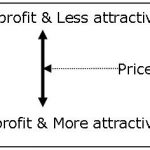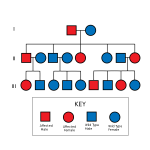When you mastered speedreading, slow reading is not an easy task. We describe the reasons for slow reading, the difficulties that rise when reading slowly and how to deal with them. Recently I read an article on reading slowly. Reading slowly is a hard task for superlearner. Suddenly you have all this time and nothing …
KeyToStudy Offers:
Memory, Speedreading, and Analysis
KeyToStudy Overview:
Memory, Speedreading, and Analysis
ProlificFocus Overview:
Productivity, Motivation, and Projects
ProlificFocus Offers:
Productivity, Motivation, and Projects
From C to A in 5 days
Every student wants to have good grades. Every parent wants his child to be A+ students without loosing creativity and joyfulness. In this blog we plan to give some insights on how this can be done. This article is probably the first in series of planned posts that will be generated as we prepare materials …
High-level chunking
High-level chunking allows to operate with up to 80 object in your working memory, using computer-like data structures. Since the size of working memory is correlated with IQ, this actually make you smarter. When dealing with large amount of information you may choose several strategies to encode it. High level visualization is probably the most …
Playful aspects of making markers
Some of our students are extremely driven and focused. Generally these are excellent qualities for superlearner. Unfortunately some of the playful aspects of marker creation require “letting go”. You cannot afford perfectionism when you read at 1000wpm. You should not remake markers when you use high-level visualization or “cartoon” method. You do need crazy stunts …
Memorizing music
Many of our students ask how to memorize music. I am not an expert in this area. Once I produced a disc with jazz songs I wrote, but this is the closest I got to working with music. So I made a short research into what other people suggest. As everybody else I suggest to …
Synesthesia
The subject of synesthesia [when various senses “leak” into each other] was discussed several times during last month. First of all visit this site to learn more about synesthesia. Synesthesia naturally occurs in one out of 2000 people. If you have synestesia you can learn to do this. Moreover you could encode music, taste or …
Creating and using stylized markers
This is a basic and deep post that could be added to the course. It requires a bit more time and effort than a regular post on this site. I do suggest to visit all the links within and think about integrating it in your superlearning skillset. During the course we teach our students to …
Taking notes
Taking notes when learning is a very basic technique. There is a consensus that some notes should be taken be taken, yet it is not fully clear what notes should be taken and why. Notetaking for reviewing the content Occasionally we need to take note as the only/the best way to remember the content for …
Remembering multiple objects
One of the key exercises in making markers is remembering multiple objects. We have several ways of representing the object that need to be remembered and several strategies to address the memorization task. The task is very similar to remembering several markers scattered across multiple unrelated sources. The subject is being addressed in various forms …
Does superlearning cure ADD/ADHD/dyslexia?
We have long ago discovered anecdotal evidence that our methodology REALLY helps he people who have learning disabilities. Some of our students suffered dyslexia and using mental markers jumped from 20wpm to 1200wpm. Other students had trouble focusing on the text and were “cured” by the joyful gamification of speedreading. Even the students with brain …
Continue reading “Does superlearning cure ADD/ADHD/dyslexia?”










